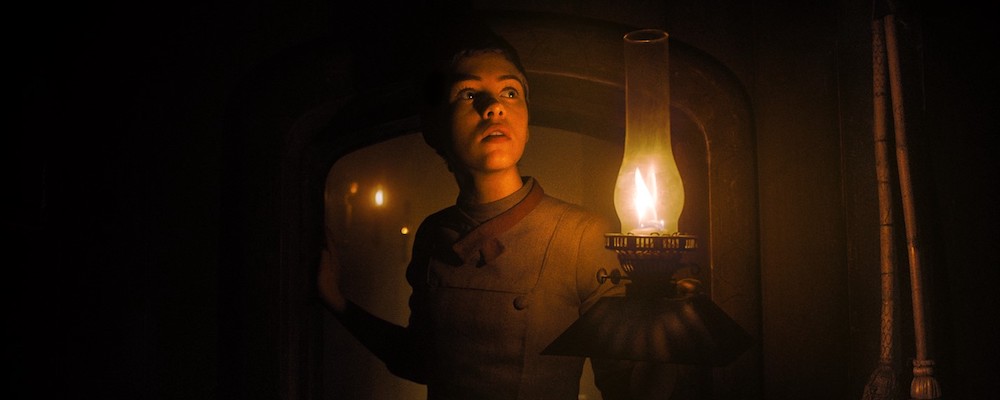‘Gretel & Hansel’ Offers Few Scares
Sandra Miska
A classic German fairy tale gets an update with director Osgood Perkins’ “Gretel & Hansel.” The title has been changed from the Brothers Grimm version, “Hansel & Gretel,” because in this story, it is 16-year-old Gretel (Sophia Lillis) who drives the action, risking her own life to protect her eight-year-old brother, Hansel (Samuel Leakey).
“Gretel & Hansel” begins with some folklore within the folklore, the tale of a cherished little girl who turns evil after her father makes use of black magic to save her life. Some years later, probably in the nineteenth century, in an unspecified part of Europe (most likely Germany, although it’s hard to decipher from the accents), Gretel struggles to ensure the survival of herself and her family during a famine. After an old man she interviews with for a housekeeper position turns out to be a pervert, her mother suggests that she seek a place in a convent. However, this is not an option, as it would mean her leaving behind her brother. After Mom cracks, the pair set off into the woods, and after a few scares, one involving a malevolent figure, the other involving hallucinogenic mushrooms, they end up at the doorstep of Holda (Alice Krige), an elderly woman with a sharp tongue and an endless supply of food. Seeing a good thing, Gretel offers her and Hansel’s help around the house and property in exchange for room and board. However, what was meant to be a temporary situation turns into something more long term, and bother siblings alternately tell each other to ignore their growing suspicions of Holda and how she gets her supplies.
Perkins puts a feminist twist on the tale, not just with his title but also by the way he focuses on the relationship between Gretel and Holda. The older woman takes the girl under her wing, teaching her how to tap into her powers. In this time period, women had few options outside of being a wife, nun, housekeeper, or prostitute, and Gretel cannot resist when Holda shows her an alternative lifestyle that would render her independent. Lillis gives a fine performance as Gretel transitions into womanhood with a heavy burden on her shoulders. At one point, she dreams of bleeding corpses only to wake up soiled from her menstrual cycle, an eerie juxtaposition.
In addition to Lillis, a strength of “Gretel & Hansel” is its stunning, almost hypnotic cinematography. However, it suffers from slow pacing, and there are few truly frightening moments. All of the build-up under Holda’s roof leads to a convoluted finale. The original premise of an old witch who lures in children to fatten them up and eat them should have been scary enough, but Perkins goes overboard with a backstory for Holda and supernatural elements. When all is said and done, the audience is cheated of the spooky experience promised, although those with patience will appreciate the more artistic aspects of the film.
“Gretel & Hansel” opens Jan. 31 nationwide.

